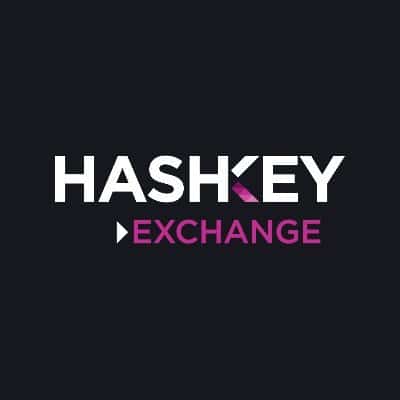
CoinGape has been covering cryptocurrency and blockchain markets since 2017. Our editorial team evaluates projects and platforms using structured review frameworks focused on transparency, utility, and risk assessment. You can explore our review methodologies to see how we assess and rate different categories. We maintain clear editorial standards and disclose advertising or affiliate relationships where applicable.
Hong Kong has always been a major player in global finance, and in recent years, the region has turned into one of Asia’s biggest crypto hubs. From crypto exchanges to blockchain startups, many companies are choosing Hong Kong as their crypto base, and it’s easy to see why.


Following the ups and downs of the crypto industry in 2022, Hong Kong became one of the first regions to introduce serious regulatory measures for the sector. The government introduced a new licensing regime for crypto exchanges.
This meant any exchange that wanted to serve Hong Kong users must comply with laid-down rules, and register with the Securities and Futures Commission (SFC). The goal was to make crypto safer for everyday users.
Since then, the SFC has helped bring clarity and order to the space, with stricter guidance on how exchanges handle user funds and protect customers, and confidence is growing again. Unlike some regions that are yet to decide on an approach to crypto regulation, Hong Kong leads with transparency without forfeiting oversight.
This approach continues to pay off even in 2025. More crypto exchanges are launching in Hong Kong and user adoption is on the increase. Whether you are just starting out or you are an experienced trader, there are lots of platforms to choose from, backed by strong licenses and regulatory oversight.
In this guide, we’ll break down some of the best crypto exchanges in Hong Kong for 2025. We’ll explain what makes each one special, who they are best suited for, and what kind of fees and features you can expect on each. Whether you are looking for a low-fee crypto exchange or easy to use design, there’s something for everyone on this list.
Being a licensed crypto exchange in Hong Kong is a significant achievement, as it means being approved to operate by the SFC, which implies following strict rules to protect users. The SFC introduced the VATP (Virtual Assets Trading Platform) licensing framework in 2025. To secure this license, crypto exchanges must prove that they have the capacity to custody user funds, prevent money laundering, and operate transparently. These requirements made it difficult for just any exchange to operate in Hong Kong, meaning more sense of safety for users.
Beyond the early requirements, the SFC also requires crypto exchanges to adhere to strict AML/KYC (Anti-money laundering/ Know Your Customer) procedure, provide fair trading practices, and separate company funds from client’s funds. The SFC also ensures that licensed exchanges have strong cybersecurity and dispute settlement measures.
Using a regulated exchange in Hong Kong comes with real benefits, especially for those who think long-term and security. First, these platforms offer legal protection. If anything goes wrong, like a security breach of mismanagement, you have the law behind you and the oversight of the Securities and Futures Commission. This provides you with a clear dispute channel.
The SFC also requires that licensed exchanges meet strict security and operational standards. These exchanges use top-level security systems to protect your funds and data, while also separating client funds from company assets.
Plus, regulated exchanges adhere to strict AML/KYC demands, reducing the chances of shady activities. This regulation is important for institutional investors, wealth managers and everyday users. It boosts confidence, and offers access to platforms that are built to last, and not ride the hype.
| xchange Name | License Status | Local Support | Notable Strengths | |
|---|---|---|---|---|
 MEXC | Unlicensed in major jurisdictions | Multilingual | Low fees, 3,000+ assets, high liquidity | Learn More |
 HKVAX | Licensed | Cantonese, English | Strong Compliance | Learn More |
 OSL | Licensed | English | Institutional Grade Security | Learn More |
 Hashkey | Licensed | Mandarin, English | UX Focused, High Liquidity | Learn More |
 Crypto.com | Applied | Multi-Lingual | User-Friendly, Strong Ecosystem. Mobile-First Experience | Learn More |
 Bixin.com | Applied (withdrew) | Global | Altcoin Variety, High Asset Count | Learn More |
 WhaleFin | Applied | Mandarin | Early-Entrant, Multi-Service Platform | Learn More |
 Huobi | Applied | English, Mandarin | Innovative Yield Strategies | Learn More |
 Bybit | Applied (withdrew) | Multilingual | Fast Matching Engine | Learn More |
 Gate.io | Applied (withdrew) | English, Mandarin | Large User-base | Learn More |
 OKX | Applied (withdrew) | English, Mandarin | High Volume, Strong Product Suite | Learn More |
Hong Kong is arguably one of the best places to trade cryptocurrencies for users who care about security, transparency, and local support. With multiple exchanges available, how do you find the right fit for your needs? Whether you are a day trader, long-term HODLer, or just looking for easy P2P access, getting the right exchange is a big deal and can affect your trading experience.
Here are some key factors to consider
Crypto trading is a round-the-clock experience, meaning risks are a 24/7 possibility for exchanges that offer top-tier security features such as multi-factor authentication, cold wallet storage, and insurance to cover in the case of hacks or internal compromises. OSL for example has a strong institutional-level security infrastructure, while HashKey prioritises strong internal controls and user protection mechanisms.
Fees can easily eat into your profit, especially frequent traders. So, it’s important to consider the fee structure of each exchange before using them. A good approach would be to compare the trading fees, withdrawal charges and spreads across exchanges. Some platforms offer low fees but widen the spreads. Meanwhile, others charge more per trade but provide a better execution price. We recommend platforms like Gate.io, known for low-cost trading on several assets.
“What are the available deposit options” is another important question to ask. The ease with which you fund your account matters if you’re based in Hong Kong. You need a platform with good FPS support, bank transfers or credit/debit card options. All of these make onboarding a smooth experience. Plus, some licensed exchanges support depositing HKD directly, reducing conversion fees.
User interface can be a dealbreaker, depending on how you trade. Mobile-first users would prefer exchanges like Crypto.com that allow you manage your assets on the go. Meanwhile, users with a preference for desktop trading need exchanges that offer deep charts, and advanced trading tools. A platform like HashKey, for example, offers a good blend of both mobile and desktop.
Finally, customer service is an important factor to consider, especially in the volatile crypto market where delays can be costly. Look for licensed platforms with 24/7 support, fast ticket resolution and multiple language support, including Cantonese or Mandarin for locals. HKVAX and HaskKey offer better localized support.

As of September 2025, MEXC boasts over 36 million global users, making it a leading exchange. It offers early listings of low-cap coins, as well as spot, futures, margin, staking, and ETF markets. Fees are 0.2%, reducible with MX tokens.
Security includes full reserves, cold storage, two-factor authentication (2FA), and anti-phishing measures. Operating in 170+ countries, MEXC lacks major regulatory licenses and restricts users in the U.S., U.K., Hong Kong, Canada, Japan, and Singapore.

Hong Kong’s native virtual asset exchange – HKVAX was launched in 2019 and has since this time channeled efforts into building a functional trading platform for digital assets. October 02, 2024, it was licensed under the Security and Futures Ordinance (SFO) and Anti Money Laundry and Counter-terrorist Financing Ordinance (AMLO) to provide financial services to investors in the Hong Kong region. HKVAX has raised funds through several fundraisers and partnered with other reputable firms in the region to provide user-friendly services to its users. It hopes to offer trading services for Bitcoin, Ethereum, and other top crypto assets and stablecoins by 2025. HKVAX will also offer other financial services like ETF trading, RWA tokenization, STOs, and OTC brokerage.

On December 15, 2020, OSL Exchange was licensed under the Security and Futures Ordinance (SFO) and Anti Money Laundry and Counter-terrorist Financing Ordinance (AMLO) to provide financial services to investors in the Hong Kong region. OSL connects investors in the region to traditional banking and crypto investments. Thanks to its tradfi-crypto services, investors can purchase crypto assets using the Hong Kong dollar (HKD) deposited directly from their bank. In addition to regular crypto trading, OSL Exchange offers enterprise financial solutions like OTC trading, asset custody, and an RWA tokenization platform. The OSL Omnibus assists enterprises in providing crypto financial services to their clients. OSL Exchange also offers zero-fee trading for Hong Kong crypto investors. According to the exchange, users’ funds are protected via a military-grade security infrastructure and a $1 Billion insurance policy.

The Hong Kong arm of the HashKey exchange was licensed under the Security and Futures Ordinance (SFO) and Anti Money Laundry and Counter-terrorist Financing Ordinance (AMLO) on November 9, 2022, to provide financial services to investors in the Hong Kong region. Hashkey is a top cryptocurrency exchange with support for several crypto assets including Bitcoin, Avalanche, Solana, Ethereum, and US-pegged stablecoins. Hashkey offers spot and derivatives crypto trading to Hong Kong investors.
Thanks to its relationship with traditional banking institutions in the region, it also enables investors to purchase crypto via their banking facilities. Users are however required to complete a compulsory verification procedure to trade on the platform. Fees for trading on the platform vary according to the user’s tier but could be up to 0.23% for retail traders.

Crypto.com applied for operational licensing in the Hong Kong region on February 9, 2024. While the exchange’s license is still yet to be confirmed, investors in Hong Kong can trade cryptocurrencies on the platform. The exchange was established in Hong Kong but has since spread across several other regions. Crypto.com is available in over 100 countries worldwide. It allows users to trade over 200 crypto assets including Bitcoin, Ethereum, over 20 Fiat currencies, and stablecoins. Spot and derivatives trading services are available for supported assets. Crypto.com allows Hong Kong investors to purchase crypto through on-ramp trading. Fees for trading on the platform can be as high as 0.075% of the traded volume.

Bixin is a web3 service provider founded in 2014. It specializes in developing web3 tools like self-custody applications and mining facilities. Bixin filed for regulatory licensing for its virtual asset exchange in Hong Kong on January 24, 2024. The virtual asset exchange platform will offer spot trading services for selected crypto assets to investors in the Hong Kong region. Bixin currently supports only three crypto assets – BTC, ETH, and USDC and has shared its plans to expand its offering. It has also partnered with traditional banking institutions in the region to enable users to purchase crypto using their banking facilities.

WhaleFin allows investors in the Hong Kong region to trade over 50 crypto assets including Bitcoin, Ethereum, and stablecoins. The exchange applied for regulatory licensing in the region on February 21, 2024. While the platform is yet to be licensed, investors in the region can create an account and trade the supported assets. Users are, however, required to complete their KYC verification before they can use the platform. In addition to spot trading, Whalefin offers crypto lending services and passive income programs as well. The trading fee on the platform is 0.05% of the traded volume for makers and takers.

Huobi HK, the Hong Kong arm of cryptocurrency exchange – Huobi applied for licensing in the Hong Kong region on February 26, 2024, but withdrew their application just three months later. Regardless, the platform is still accessible to investors in the region. Houbi Exchange offers spot and derivatives services for over 200 cryptocurrencies including memecoins and fiat currencies. Trading fees on the platform depend on the user’s tier but could be as high as 0.2% of the traded volume.

Bybit applied for AMLO and SFO licenses in the Asian region but withdrew their application four months later. The platform is still accessible to investors in Hong Kong and offers spot and derivatives trading services for over 200 crypto assets including fiat currencies. Bybit enables users to purchase crypto assets directly from their banks using on-ramp trading services. Bybit also offers additional financial services like self-custody services, enterprise-grade solutions, and passive income programs.

Gate.io is popular for its wide coverage of crypto assets, the exchange supports over 2000, cryptocurrencies including fiat currencies and stablecoins. Gate.io applied for licensing in Hong Kong in February 2024 but withdrew its application three months later. The platform is still accessible to investors in the region and offers spot and derivatives trading and additional services like passive income programs. fees for trading on the platform is as high as 0.1% of the traded volume.

OKX withdrew its application for a license to operate in Hong Kong on May 25, 2024. However, the platform continues to be available to traders in the region. OKX offers spot and derivatives crypto trading for investors in the Asian region, however, note that some of these services may be limited, OKX also offers self-custody facilities like a web3 wallet and marketplace.
Moving around crypto exchange fees can be tricky, especially with different platforms charging in different ways. Whether you’re a new or experienced trader, knowing what you’re paying for is one smart strategy to keep profits high and costs low. Here’s a simple guide to help you understand the regular fee you might encounter on most Hong Kong crypto exchanges.
Crypto exchanges charge users in several ways. The most common include:
Other Fees: You might also encounter fees for:
Each of these fees can easily eat into your profit, as earlier explained. So, it’s best to fully understand them before using an exchange.
| Exchange | Maker/Taker Fees | Deposit Fees | Withdrawal Fees | Additional Costs |
| HashKey | 0.1% / 0.2% | Free (FPS) | 0.0001 BTC or 0.0009 ETH (crypto withdrawal fees) | No added fees |
| Crypto.com | 0.075% 0.075% (tiered) | Free (local bank) | Fees vary by coin | Conversion fee may apply |
| Gate.io | 0.02%/0.02% | Free (crypto) | Network fee + fiat fee | Occasional withdrawal limits |
Some exchanges might have low fees on paper, but there could be hidden costs you should be aware of:
Spread-based pricing vs. flat fees
Some platforms claim to offer “zero fees” but profit from the spread (the difference between the buy and sell price.) This spread can, in most cases, cost more than flat trading fees, especially on low-volume pairs. If you’re getting less crypto than expected for your money, the spread is likely the reason.
Slippage and liquidity issues
When you place a large order or trade during low-volume hours, your order might get filled at a worse price than expected. That’s called slippage, and it can quietly eat into profits, especially on smaller exchanges with limited liquidity.
Currency conversion and FX charges
If you deposit funds in HKD but the exchange only accepts USD or USDT, you might pay foreign exchange fees, either from your bank or the platform itself. These costs aren’t always obvious but can build up quickly.
What to look for in transparent exchanges
Choose platforms that publish a clear fee structure, show real-time spreads, and disclose all charges upfront, whether it’s trading fees, withdrawal costs, or conversion rates. Good exchanges also offer fee calculators or at least show a transaction breakdown before you click confirm.
Looking for the best low-fee exchange without sacrificing performance? Here are some of the best options for Hong Kong users:
Crypto exchanges in Hong Kong are mostly safe, especially those licensed by the Securities and Futures Commission (SFC). However, like any financial service, the level of safety depends on the platform’s internal controls and your personal security habits.
The SFC plays a huge role in ensuring Hong Kong users are safe to trade on crypto exchanges. It ensures that licensed platforms comply with strict regulations covering cybersecurity, operational risk management, and anti-money laundering (AML)/ Know Your Customer (KYC) procedures. In addition, the SFC mandates exchanges to undergo independent audits, maintain internal control systems and report regularly to ensure compliance. This enforcement pattern creates a more transparent and secure environment compared to unregulated platforms.
Custodial exchanges like OKX or Crypto.com hold your crypto on your behalf, providing users with convenience but exposing them to potential platform risks like hacks. In contrast, non-custodial platforms give users full control over their assets. While this system enhances self-sovereignty, it requires increased personal responsibility. The right choice depends on your security comfort level.
Like most regions, Hong Kong has seen its share of exchange-related problems. For example, Bitfinex, a Hong Kong-based exchange suffered a hack of 120,000 Bitcoin, valued at over $70 million at the time. The situation led to increased scrutiny of exchanges in the region. Similarly, Gatecoin, another Hong Kong-based exchange, suffered a hack of over 250 BTC and 180,000 Ether. These security concerns led to a massive upgrade of the security infrastructures of most crypto exchanges in Hong Kong.
Modern exchanges use layered security, including cold wallet storage, multi-signature access, and proof-of-reserves audits. Some exchanges also offer insurance coverage for digital assets. Generally, security measures like two-factor authentication (2FA), whitelisting, and biometric logins are considered standard practices in protecting your account from unauthorized access.
Hong Kong has one of Asia’s most robust regulatory regimes for digital assets like cryptocurrencies. The Securities and Futures Commission (SFC) closely oversees a licensing system for Virtual Asset Service Providers (VASPs), closely modeled on global standards, such as those set by the Financial Action Task Force (FATF), and in similar spirit to the EU’s AMLD5. Currently, Hong Kong laws require centralized virtual asset trading platforms to secure dual licenses under both the Securities and Futures Ordinance (SFO) and the Anti-Money Laundering and Counter-Terrorist Financing Ordinance (AMLO) to legally serve Hong Kong users.
Currently, the SFC does not oversee decentralized finance (DeFi) platforms like DEXs or staking protocols. However, Hong Kong regulators have issued frequent public warnings that interacting with unregulated DeFi apps is risky, as most of these apps are not under the same accountability standards. Although DeFi in Hong Kong has limited enforcement, the SFC plans to absorb the sector into its jurisdiction, especially where off-chain actors like developers are identifiable.
Hong Kong authorities tightly control retail access to crypto. Only licensed crypto exchanges can serve retail clients, and these platforms are required to implement suitability checks. Generally, Hong Kong gives preference to investors with portfolios above HKD 8 million. However, some select exchanges cater to retail users who pass risk assessment, and acknowledge the risks of crypto trading.
Hong Kong is currently one of the most crypto tax-friendly regions in the world, with no capital gains tax policy. For most retail users, profits from buying or selling crypto is not taxable as long as such a transaction is considered personal investment. However, when an individual or business is actively deemed to trade or run a crypto-related business, then profits from such ventures are subject to income tax laws.
For example, buying Bitcoin, holding it for a year and selling for profit is not taxed. However, operating an OTC desk or trading full-time could be taxed as business income. Also, there’s currently no mandatory crypto tax reporting system. However, businesses are required to declare relevant income. Plus, the Inland Revenue Department (IRD) has the authority to qualify a crypto activity as taxable business operations or not.
Retail traders currently drive a large portion of trading volumes, especially on platforms like OKX and Bybit that offer user-friendly mobile apps and perpetual futures with low fees. However, there’s been a surge in institutional-grade products in 2025, especially through licensed exchanges like OSL and HashKey. Institutions are primarily focused on custody solutions, regulated trading environments and tokenized securities. In contrast, retail users show preference to spot trading, yield farming, and derivatives.
Hong Kong has carved a niche as a regional hub for GameFi and NFTs. This growth is largely driven by local interest in Web3 gaming. Projects like Artifact Labs, which tokenizes historical collectibles have gained popularity in Hong Kong . Meanwhile, NFTs are beyond speculative assets in Hong Kong. Instead, they are used for ticketing, membership and virtual real estate. Although daily trading volume is down from levels seen in 2022, Web3 gaming adoption remains steady, driven by partnership with mainstream brands, and the integration of NFTs into most gaming ecosystems.
Licensed exchanges in Hong Kong see notable trading volumes, particularly in spot crypto ETFs and derivative products. Then on most exchanges, daily volumes range from $5 million to $20 million, with spikes during market rallies. Interestingly, mobile trading is highly popular in Hong Kong, especially among younger traders. OKX, for example, reports that over 70% of transactions were completed using smartphones.
Hong Kong’s crypto landscape is dynamic, featuring both young and middle-aged users. The most active age group is within 25-35, with many seeing crypto as an alternative investment option. There’s also a notable cross-border user segment, with residents using Hong Kong-based platforms to access opportunities not available in mainland China, such as unrestricted DeFi protocols or offshore stablecoins. This way, Hong Kong serves as a gateway for regional crypto trading.
The best crypto exchange in Hong Kong would depend on your need and tolerance levels. For example, retail traders who prioritize safety and regulation should choose OSL, or HashKey Exchange. Both platforms are fully licensed by the SFC, and offer transparent fees, fiat support, and strong security measures. Experienced traders, or those who want to trade a wider selection of altcoins will prefer offshore exchanges like OKX, Bybit and Gate.io.
However, these platforms come with less regulatory oversight compared to OSL and HashKey. However, if you require more self-custody, then P2P marketplaces and DeFi platforms offer more flexibility, but require caution. Regardless of your choice, it’s important to always prioritise transparency, regulatory compliance and asset security. Avoid unlicensed exchanges or platforms with hidden fees.
Binance is not a licensed exchange in Hong Kong under the SFC’s current regulatory framework. While users can still access Binance via VPNs or offshore accounts, it is not authorized to serve retail clients in the local market.
Yes. Most licensed and offshore crypto exchanges operating in Hong Kong allow foreigners to open accounts. However, identity verification (KYC) is mandatory. Residency is not usually required, but having a local bank account may simplify fiat transactions.
The lowest fees are often found on exchanges like OKX or Bybit. For fully regulated options, HashKey Exchange offers direct fiat on-ramps.
Yes, Hong Kong hosts several crypto ATMs that support Bitcoin, Ethereum, and stablecoins. These machines are located in malls and commercial districts. However, some of these machines attract high fees, often between 5% and 8%.
Licensed exchanges like OSL and HashKey allow users to withdraw crypto profits in HKD to local bank accounts. Some other platforms may require you to use P2P or convert to stablecoins, then bridge using third-party services.
Yes, P2P trading is legal, but requires serious caution. While the SFC doesn’t directly regulate P2P, money laundering laws still apply.
Generally, no. Hong Kong does not impose capital gains tax. However, if crypto trading is your primary business or a source of active income, it may be treated as taxable business income.
Only licensed exchanges like HashKey and OSL currently support direct HKD deposits. Most offshore platforms require users to deposit via stablecoins or convert HKD through third-party apps.
Many Hong Kong users still use global exchanges, but there’s no local legal protection if issues arise. For better security and compliance, consider using SFC-licensed platforms that meet local regulatory standards.
As of 2025, HashKey Exchange and OSL are fully licensed under the Hong Kong VASP regime. Several others are in the application process. These platforms meet local AML and investor protection standards, making them safer for retail users.